Celebrating the 2024 Innovators in Science Award
The 2024 Innovators in Science Award winners, sponsored by Takeda, include a biomedical engineer from Columbia University and an immunologist from Washington University in St. Louis.
Published May 20, 2024
By Nina R. Montoya, PhD
Program Manager, Awards
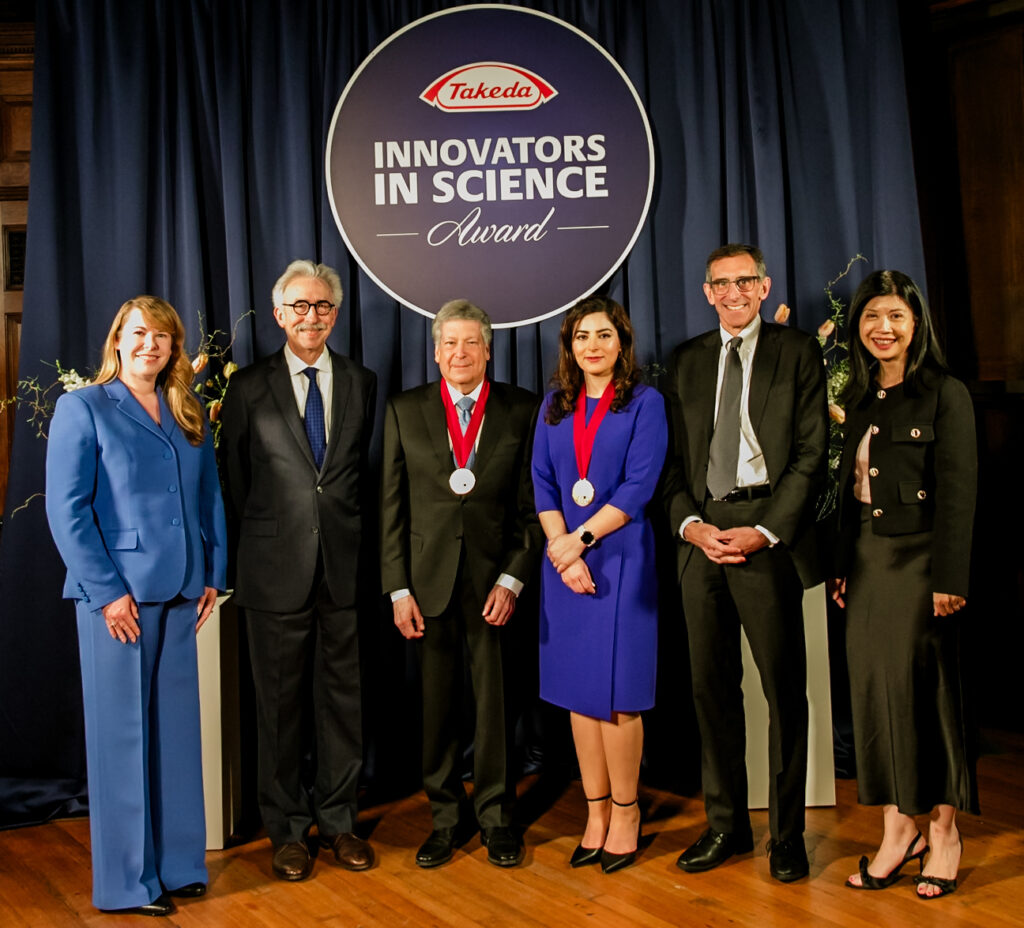
While much work remains in the fight against the second-most common cause of death in the United States, thanks to breakthrough research in genetics and immune-based therapeutics, the “big C” is no longer the life-threatening diagnosis of years ago.
On Thursday, April 11th, Takeda and The New York Academy of Sciences recognized two outstanding scientists in cancer immunology with the 2024 Innovators in Science Award. Established in 2016 in partnership with Takeda, each cycle the Innovators in Science Award recognizes one Early-Career scientist and one Senior-Scientist who have distinguished themselves with the creativity and impact of their research. Each winner receives an unrestricted prize of USD 200,000.

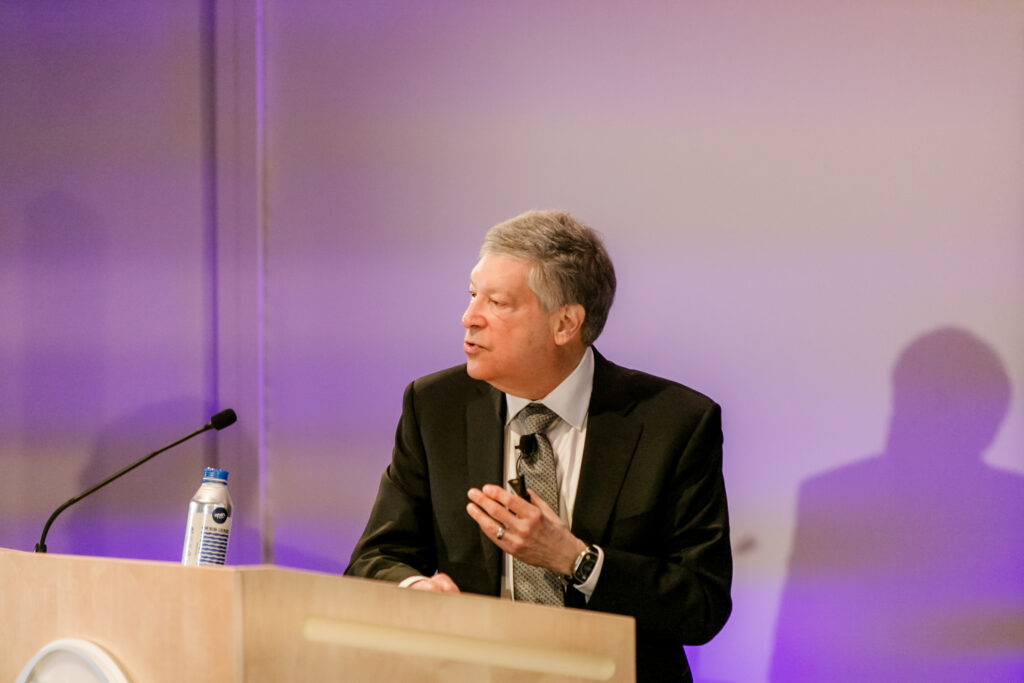
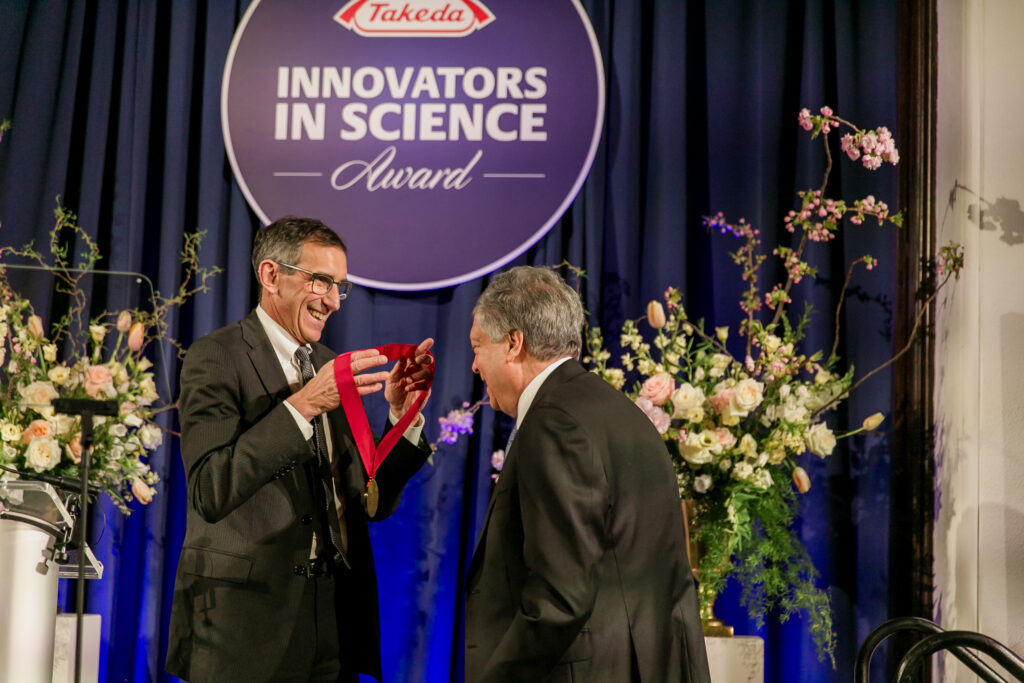
Image courtesy of Studio B Photography.
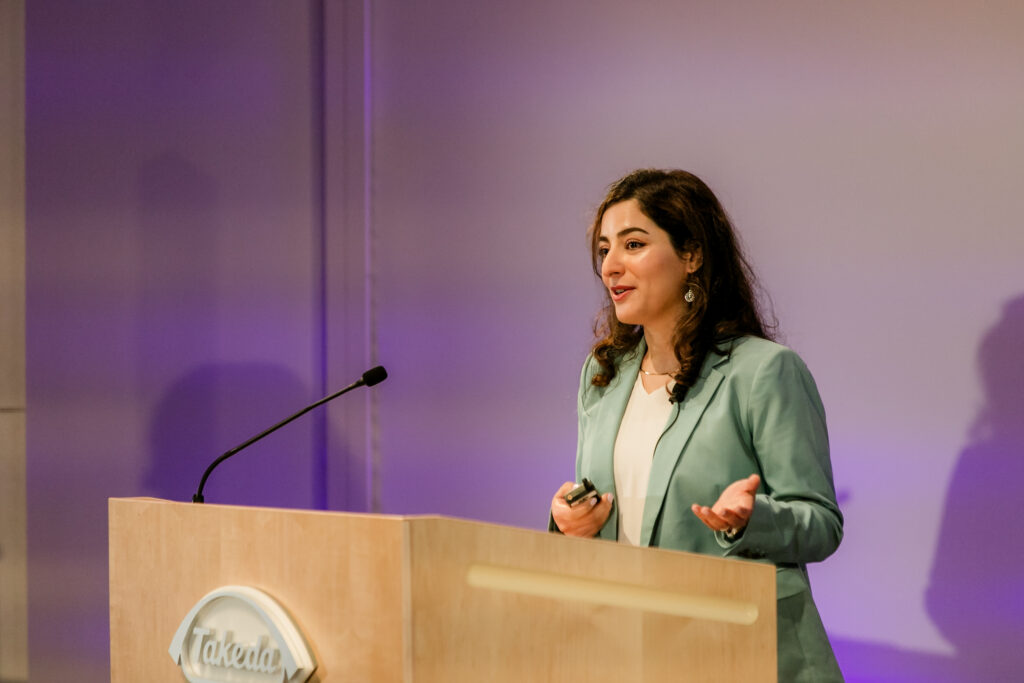
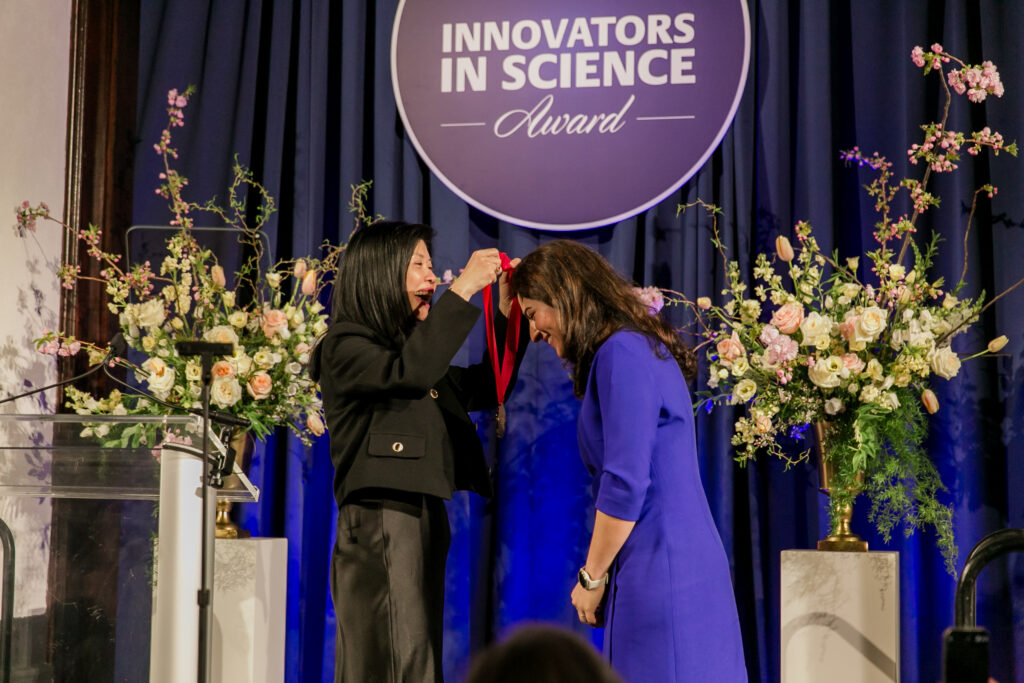

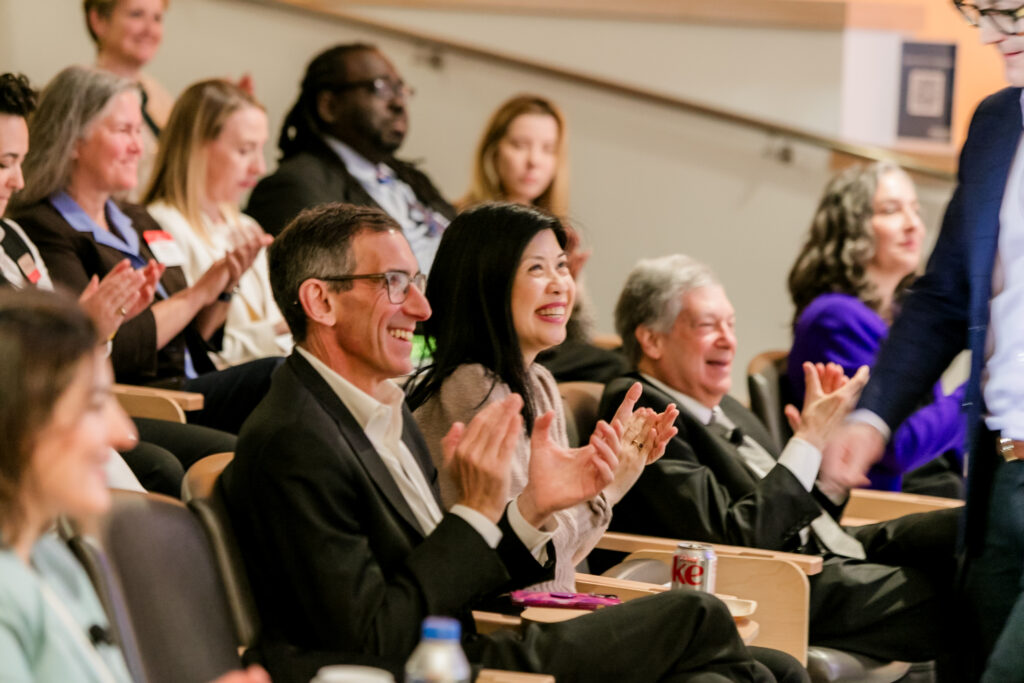
Image courtesy of Studio B Photography.
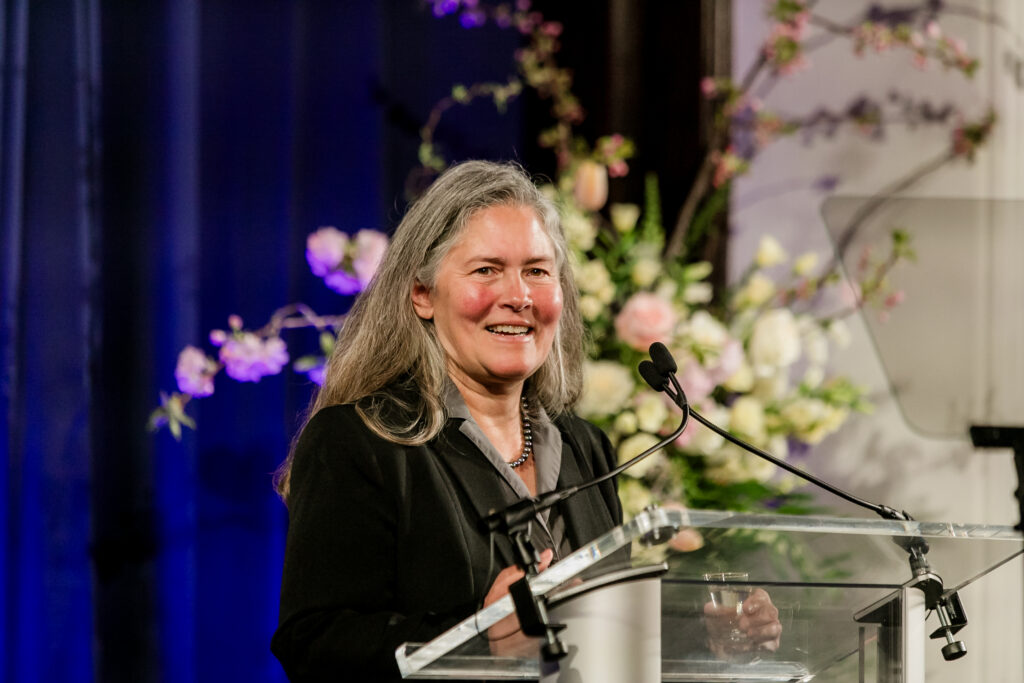
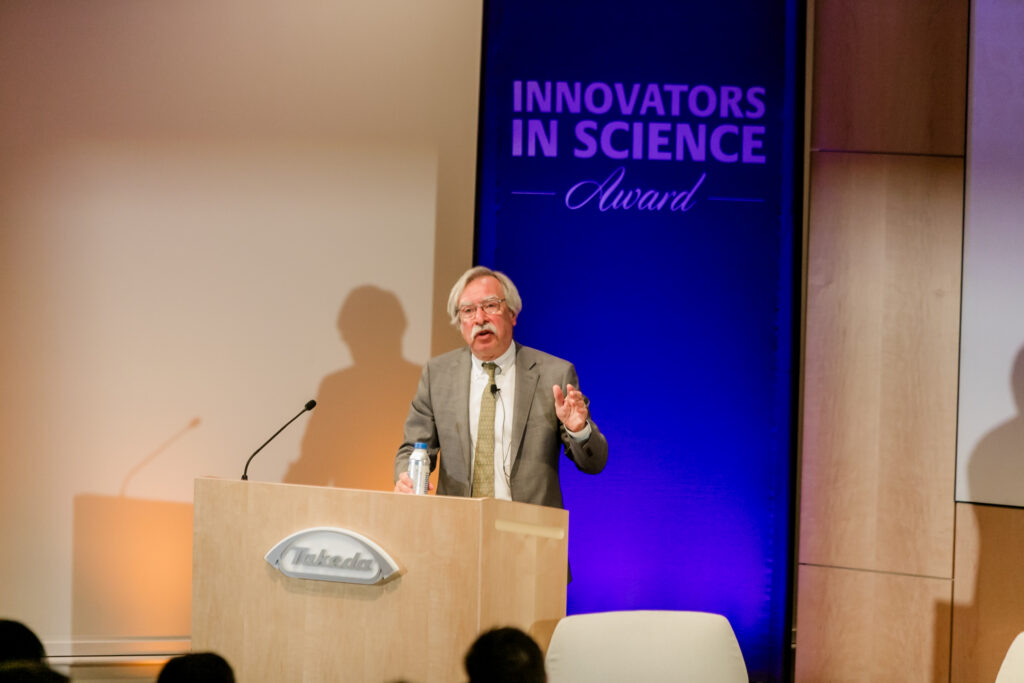
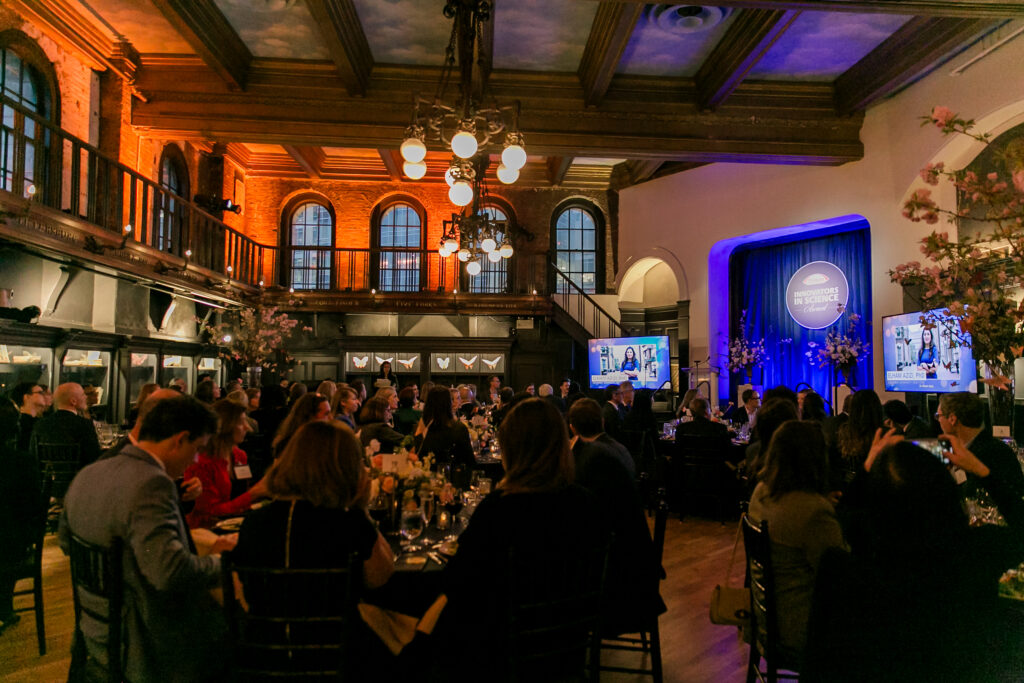
Image courtesy of Studio B Photography.
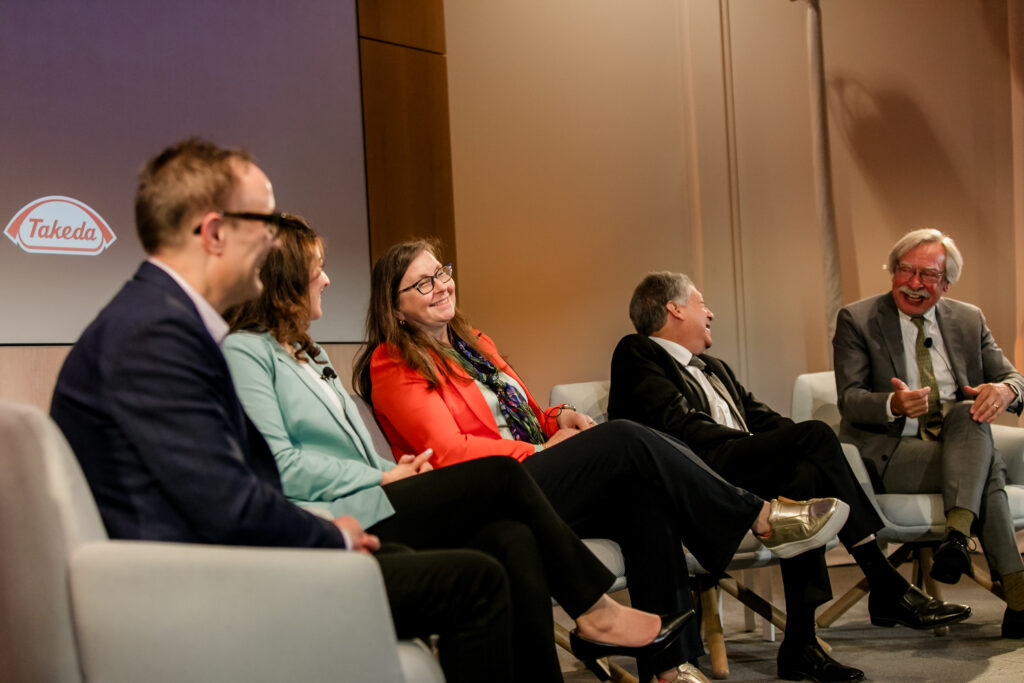
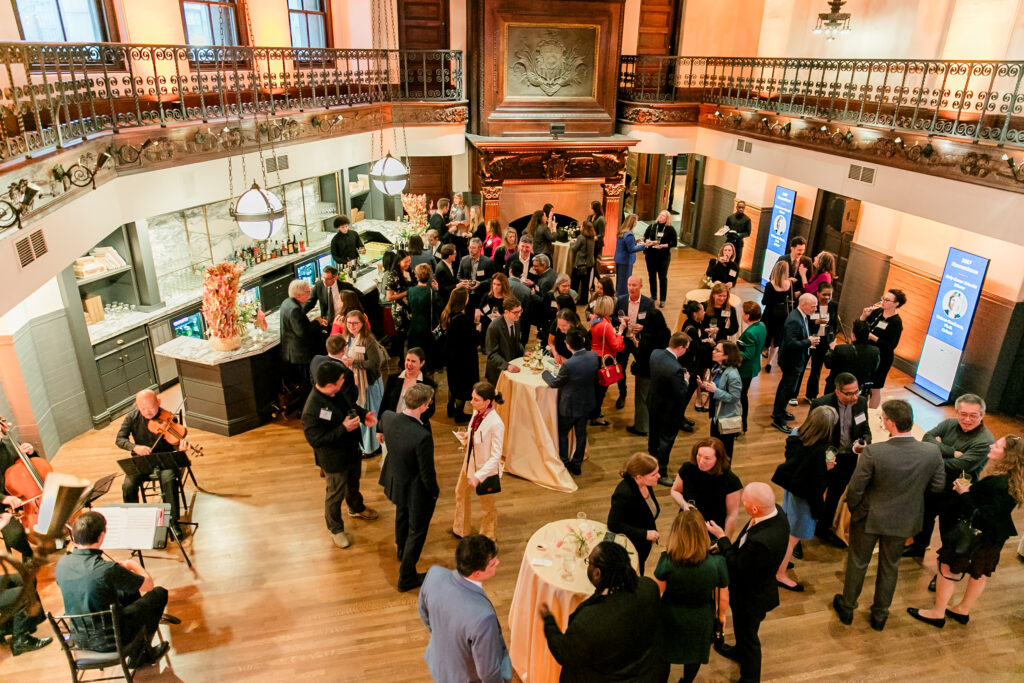
Image courtesy of Studio B Photography.
Celebrating Outstanding Science
The 2024 honorees included, Early-Career Scientist winner, Elham Azizi, PhD, assistant professor of biomedical engineering and the Herbert and Florence Irving Assistant Professor of Cancer Data Research at Columbia University, and Senior Scientist winner, Robert D. Schreiber, PhD, the Andrew M. and Jane M. Bursky Distinguished Professor of Pathology and Immunology and director of the Bursky Center for Human Immunology and Immunotherapy at Washington University in St. Louis. They were recognized for their innovative research and ongoing commitment to increasing the fundamental understanding of how cancer interacts with the immune system and designing novel biomedical approaches for personalized cancer immunotherapeutics.
At the morning Symposium hosted by Takeda, an eager group of Takeda scientists assembled both in person and virtually to hear the highlights of the winners’ work.
Schreiber shared a story of perseverance; his career has been dedicated to describing the process of “cancer immunoediting,” challenging long-standing paradigms, and proving that the immune system can recognize and interact with developing cancers.
Azizi shared an inspiring example of the power of cross-disciplinary research, illustrating creative AI and machine learning-based approaches to gain insight from complex collections of patient samples about crucial differences in patient outcomes. Both winners closed with hopeful messages about the future of cancer immunotherapeutics, particularly their aspirations for developing cancer vaccines.
Academia and Biotechnology: Cultivating Powerful Partnerships
One of the Symposium highlights was a panel entitled “Delivering Innovation to Patients Through Partnership.”
The 2024 winners were joined by scientific leaders from Takeda, Chris Arendt, PhD, and Kathy Seidl, PhD, and keynote speaker, Prof. Adrian Hayday, founder of GammaDelta Therapeutics. The panelists discussed the connections between academic science and the biotechnology industry, noting the key role these partnerships play in accelerating clinical innovation. Arendt set the tone by citing Takeda’s mission as a “patient first, science-focused company” that relies on “evaluating and leveraging the amazing science across the ecosystem.”
The panelists explored the benefits and potential pitfalls of partnerships between academic scientists and biotechnology companies through the lens of the successful build-to-buy partnership between Takeda and GammaDelta Therapeutics. The fundamental message was clear: partnerships between academia and biotechnology are essential to accelerating the bench-to-bedside pipeline and transforming basic biological research into cures.
The events continued with an evening award ceremony, attended by international experts in cancer immunology, leaders in science philanthropy, and R&D leaders from Takeda. Presenter of ceremonies, Laura Helmuth, PhD – editor-in-chief of Scientific American – took the stage at The Tower in Boston, decorated with delicate origami butterflies and cherry blossoms, a nod to Takeda’s Japanese roots. Joined by leadership from both Takeda and The New York Academy of Sciences, they championed the themes of perseverance and creativity and led the audience in a sake toast to science.
A New Immunological Paradigm
Senior Scientist winner, Robert D. Schreiber is a well-established name in the field of cytokine biology and tumor immunology, but that wasn’t always the case. Schreiber’s early work was met with powerful resistance from leaders in the field and research that suggested that the immune system was unable to recognize developing cancers. Years later, after several advancements in experimental tools including an immunodeficient mouse, Schreiber revisited these old questions with new answers.
Andrew Plump, MD, PhD, President of Research & Development at Takeda, commended Schreiber for his perseverance and dedication to training saying “Despite many prominent doubters and critics, [Dr. Schreiber] dedicated the next 40 years of his career to understanding the relationship between our immune system and cancer. Today, Dr. Schreiber must feel validated for challenging conventional thinking!”
During those 40 years, through a series of mechanistic studies, Schreiber detailed the phases of cancer immunoediting also known as “The Three E’s of Cancer Immunoediting.” By illustrating the processes of Elimination, Equilibrium, and Escape, Schreiber demonstrated that the immune system could not only recognize and kill developing cancers, but could also mold and even promote cancer growth. His lab has identified protein targets on cancer cells, called neoantigens — an essential component of future cancer vaccines, that directs the immune system to kill only cancer cells with the corresponding neoantigens while leaving healthy cells intact.
Schreiber and his lab have designed a comprehensive suite of biological markers, to take spatially-resolved images of immune cells and cancer cells within tumors over time, providing a new understanding of how interactions between different immune cell types may promote cancer clearance after vaccination or other therapies.
Personalized Cancer Medicine Powered by AI
Early-career scientist winner, Elham Azizi is taking a multi-dimensional approach to evaluate differences across individual patient treatment outcomes in pursuit of developing predictive methods to match patients with the best, and safest treatment regimen. P.K. Morrow, MD, head of the Oncology Therapeutic Unit at Takeda, said that Azizi “personifies the award through her creativity and commitment to harnessing the newest data technologies…she was inspired to use AI to help unravel the secret interactions between cancer cells and our immune system. By asking ‘what if?’ and journeying into uncharted waters.”
Azizi’s work focuses on identifying the causes of differences in patient responses to immunotherapies by profiling the environment immediately adjacent to the tumor, also called the tumor microenvironment (TME). The TME is characterized by cellular diversity. Azizi uses single-cell technologies coupled with machine learning and AI to identify the full spectrum of immune cells within the TME and model the trajectories of tumor cells from cancer initiation to remission and relapse.
By adding a third dimension, space, Azizi can create comprehensive cellular maps of the TME showing distinct clusters of cell types and cell states. During the ceremony, Azizi remarked, “These models will serve as personalized navigators, charting the optimal treatment journey for each patient through enhancing the complex coordination between immune cells that is necessary to effectively eliminate cancer.”
Science Marches On
The Innovators in Science Award recognizes both an Early-Career and Senior Scientist, connecting scientists spanning both generations and disciplines, an essential component of new scientific discoveries. Schreiber’s early work as a fundamental immunologist, demonstrating that immune cells interface with cancer cells, created a platform for Azizi to apply her computational tools to interrogate those interactions with transcriptional and spatial resolution across complex patient samples.
Now, collectively, these two scientists will drive research in personalized medicine and therapeutic or even preventative cancer vaccines. As Schreiber imagines, “cancer can be relegated to the list of other maladies that are controllable and even curable using immunologic approaches.”
A Patient-Focused Future
In his ceremony remarks, Nicholas B. Dirks, President and CEO of The New York Academy of Sciences, reflected on the impact of the Innovators in Science Award since its inception. He recalled the latest scientific breakthroughs from some of the Award’s previous winners, welcoming the 2024 recipients into this prestigious cohort and reminding us of their personification of Takeda’s mission to “drive research and development to benefit patients foremost, and bring better health and a brighter future to people worldwide.”
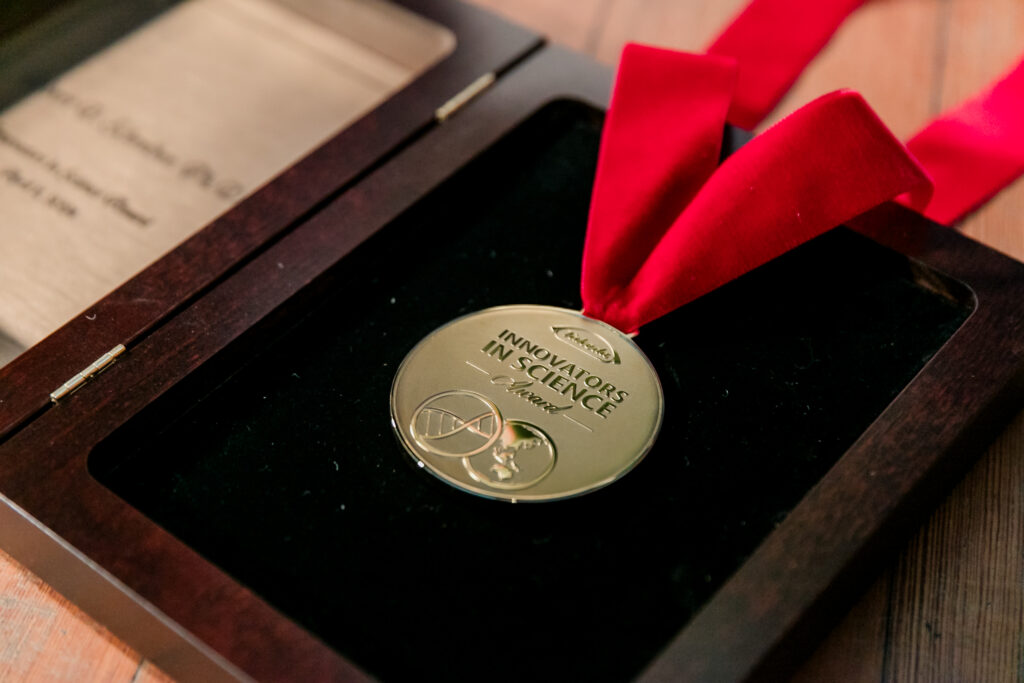
Learn more about the Innovators in Science Award.
To learn more about the 2024 winners, please watch their profile videos at the links below:
